Dreams, the new tell-all book by Mark Blake, proves once again why Fleetwood Mac is forever
A new tell-all book delves into the band’s tumultuous history and I couldn’t be more excited, writes David Kirby.
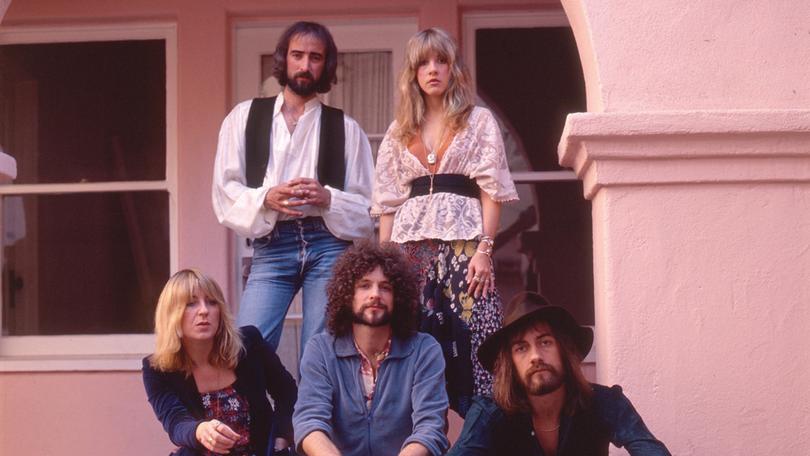
In 1974, I heard that this groovy new group called Fleetwood Mac was coming to a venue near me, so I ran right out and got a ticket that I think cost all of six bucks — pricey, yes, but I had saved up.
The show turned out to be one of the worst live band performances I had ever attended.
The music was dark and dirge-y when it wasn’t rote and repetitive, and the musicians didn’t appear to be happy with the audience or themselves.
Sign up to The Nightly's newsletters.
Get the first look at the digital newspaper, curated daily stories and breaking headlines delivered to your inbox.
By continuing you agree to our Terms and Privacy Policy.This group is terrible, I said to myself. I want my money back!
It turns out there was a reason the evening was so awful.
Long story short, following some personnel issues — the first of many — that year manager Clifford Davis claimed ownership of the band’s name and sent a different group on the road, one that didn’t include real members such as Mick Fleetwood and John McVie.
Then again, the fake band was only one of several Fleetwood Macs, Mark Blake points out in “Dreams,” a new, dishy book about the band in its many formations.
Since 1967, he writes, “there had been at least four Fleetwood Macs.
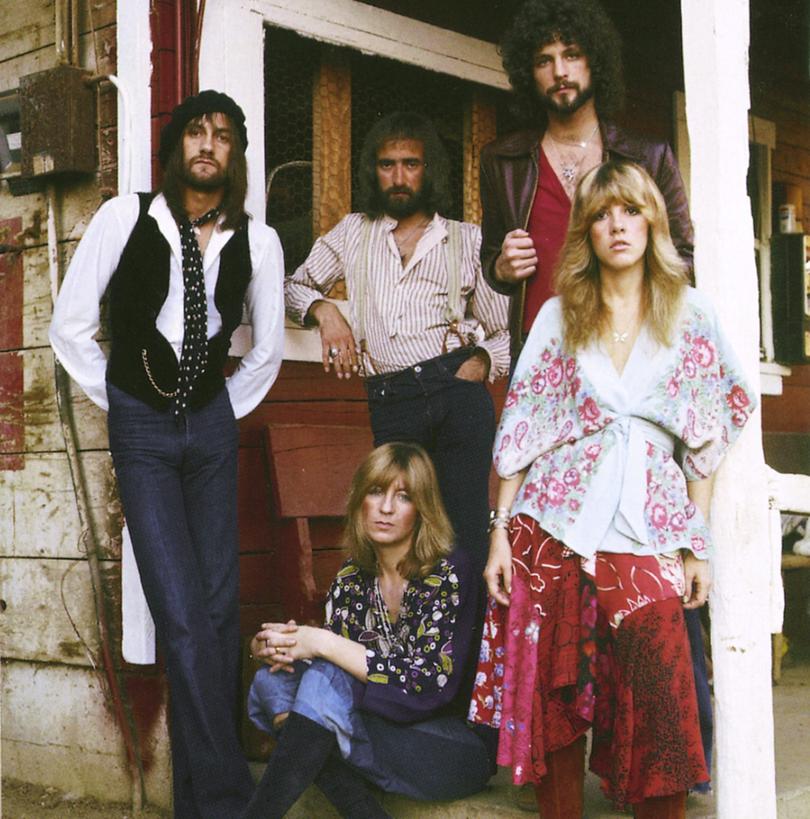
There was the original blues band of ‘Albatross’ hit-single fame; the version that made those curious folky, progressive records in the early ’70s; the one behind the multi-platinum-selling ‘White Album’ and ‘Rumours,’ and the later fluid incarnation, missing either a Stevie, a Christine, guitarist Lindsey Buckingham, or sometimes all three.”
Many musicians passed through the revolving door that led to the formation and collapse of the various Fleetwood Macs, including Peter Green and Jeremy Spencer, guitar geniuses who bailed early to grapple with mental health issues and God.
Blake, author of books about Queen, Pink Floyd, Led Zeppelin and many others, will guide you through all the hirings and firings, the couplings and uncouplings, the rivers of liquor and mountains of cocaine that went down throats and up noses, with plentiful stops along the way at the studios where the magic happened.
Instead of the usual music biography format in which the narrative rolls out in a stately manner via a series of 30-page chapters, “Dreams” consists of more than 100 short, more or less chronological sketches that may occasionally leave you wondering where you are, an issue addressed by two clever features.

The first is a cheeky list of characters in the book’s opening pages. (The one for bass guitar player McVie says his “most famous moment” is the “Dum … dur-dur-dur-dur-dur-dur-dur-dur … Dum” intro to the Fleetwood Mac classic “The Chain.”)
Then, in a touch that will delight fans of the 18th-century novel, the opening of each of the book’s seven parts features a summary of the action to come; the epigraph to Part Two reads, “Fleetwood Mac stumble blindly into the ’70s, lose more guitarists, and fall victim to a religious cult and a mischievous managerial coup.”
Of course, the nucleus of the Fleetwood Mac multiverse is the 1977 album “Rumours,” which featured chart-topping singles at the time and songs you still hear today.
But as Blake says, “Rumours” is also “all black emotions, stir-craziness and psychic trauma. Almost every song contained a thinly coded message to somebody else in the group or one of their familiars. And almost everybody was sleeping with everybody else — or just about to.”
Christine McVie had begun a relationship with the band’s lighting engineer, Curry Grant, and nobody believed her when she said that her future hit “You Make Loving Fun” was about her dog.
Another time, Stevie Nicks paused during a taping to call Buckingham an expletive, yet “the moment the tape started running again, they returned to singing in perfect harmony”.
In a recent New Yorker article, writer Alex Barasch described “Rumours” as both the group’s “magnum opus and its undoing,” an album that would “cement their fame and decimate their relationships”.
Except Fleetwood Mac didn’t come undone after “Rumours.” There was what Blake called that “fluid incarnation” that persisted for years as well as a legacy that extends to this day.
In just the last couple of years, there’s been a book and an Amazon Prime series — “Daisy Jones & the Six,” which is loosely based on the Fleetwood Mac story.
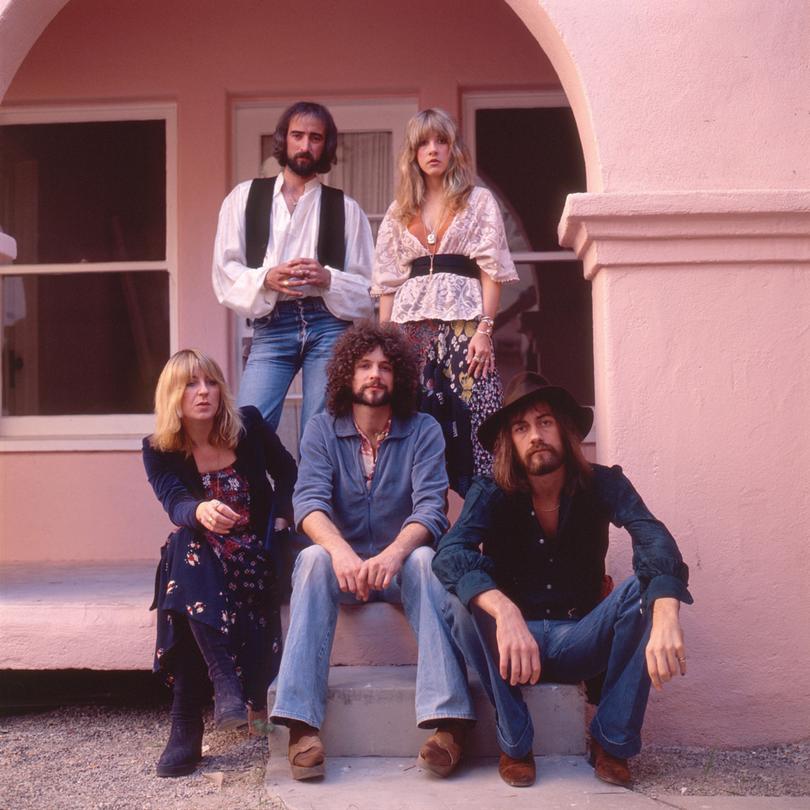
(“It brought back memories that made me feel like a ghost watching my own story,” Nicks said after viewing it.)
And one of Broadway’s biggest 2024 hits is “Stereophonic,” a play also inspired by “Rumours”.
The show received 13 Tony nominations and won five, including best play.
(Kenneth Caillat, a former sound engineer, is suing the creators for allegedly stealing copyrighted material from a memoir he co-wrote, “Making Rumours.”)
The songs continue to pop up in movie soundtracks, commercials and of course on the radio.
A recent New Yorker cartoon captures the ubiquity and remarkable durability of the music: A man sits on the floor of a store and says into his phone, “Yeah, I’ll be a minute. ‘Landslide’ just started playing at Home Depot and now I’m crying in lamps and lightbulbs.”
Shortly after Christine McVie’s death in 2022, Nicks announced the end of Fleetwood Mac.
Yet Nicks continues to tour solo — this weekend she will make a stop on the set of “Saturday Night Live,” where she will be the musical guest.
And the band’s music has, perhaps surprisingly, captured the attention of another generation.
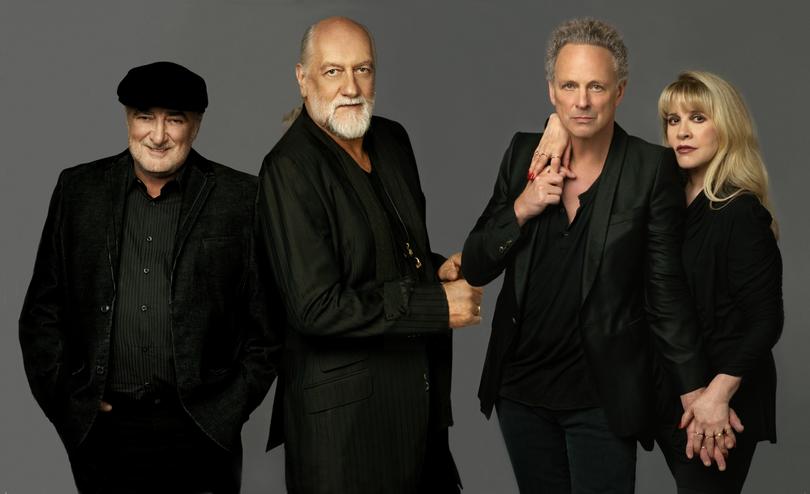
I recently asked a dozen undergraduates if they knew who Fleetwood Mac was, and almost all of them mentioned favourite songs such as “Rhiannon” and “Silver Springs,” as well as specific uses to which they put the band’s music: You dance to the Eagles and Elton John, said one student, but you put on Fleetwood Mac for a long night drive.
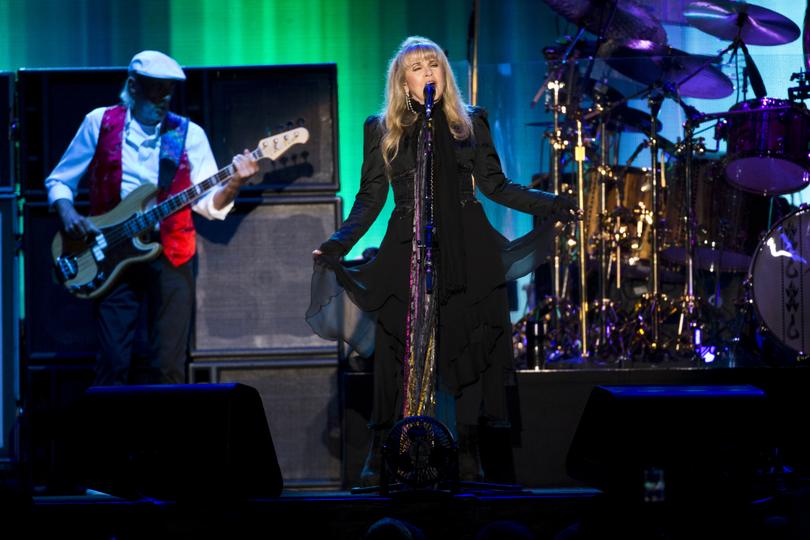
In every type of music, time’s filter catches some practitioners and not others, which is why we pay more attention to Mozart these days than contemporaries such as Antonio Salieri.
Years from now, will my students’ children be rabid fans of Taylor Swift, Rihanna, Ariana Grande?
My crystal ball fails me, but I wouldn’t be surprised if they’re all Fleetwood Mac fans.
David Kirby, a poet, teaches at Florida State University. His books include “Little Richard: The Birth of Rock ‘n’ Roll” and “Crossroad: Artist, Audience, and the Making of American Music.”
Dreams: The Many Lives of Fleetwood Mac by Mark Blake. Pegasus $US29.95
